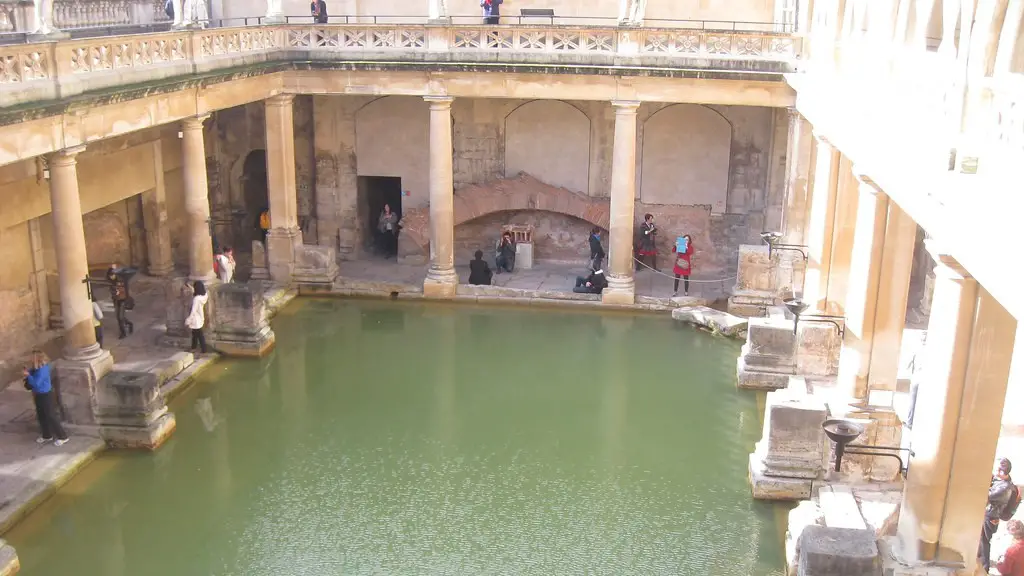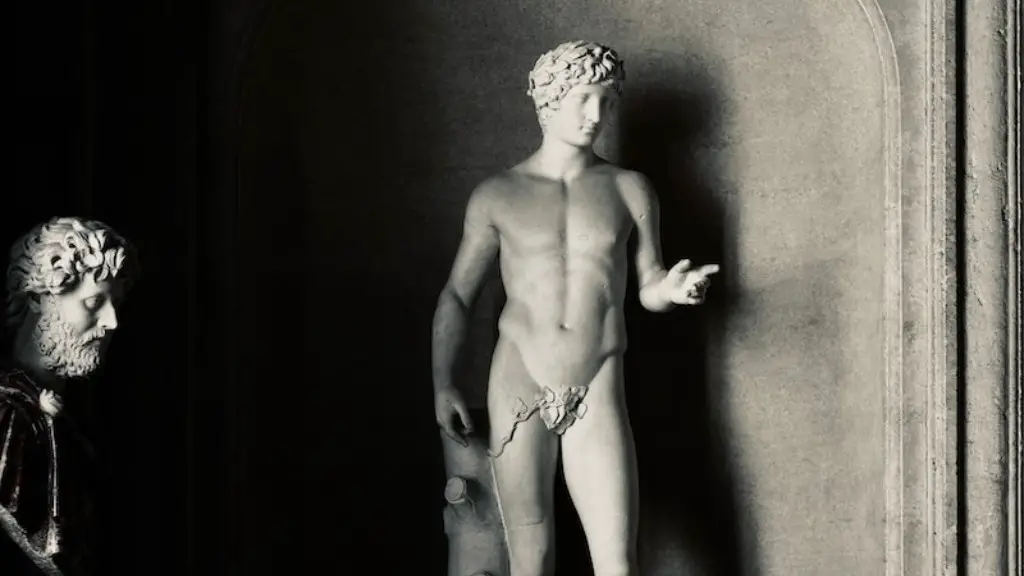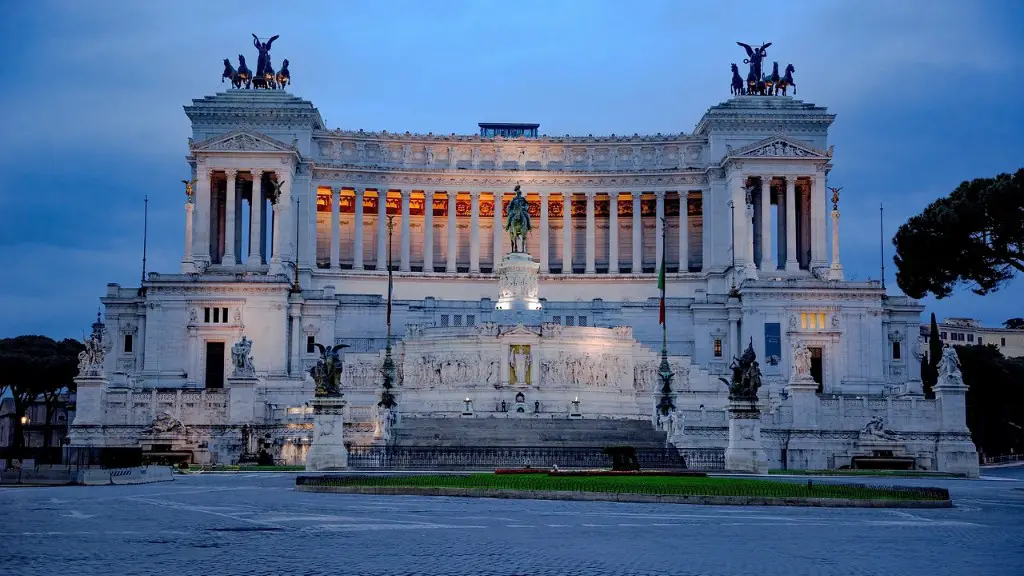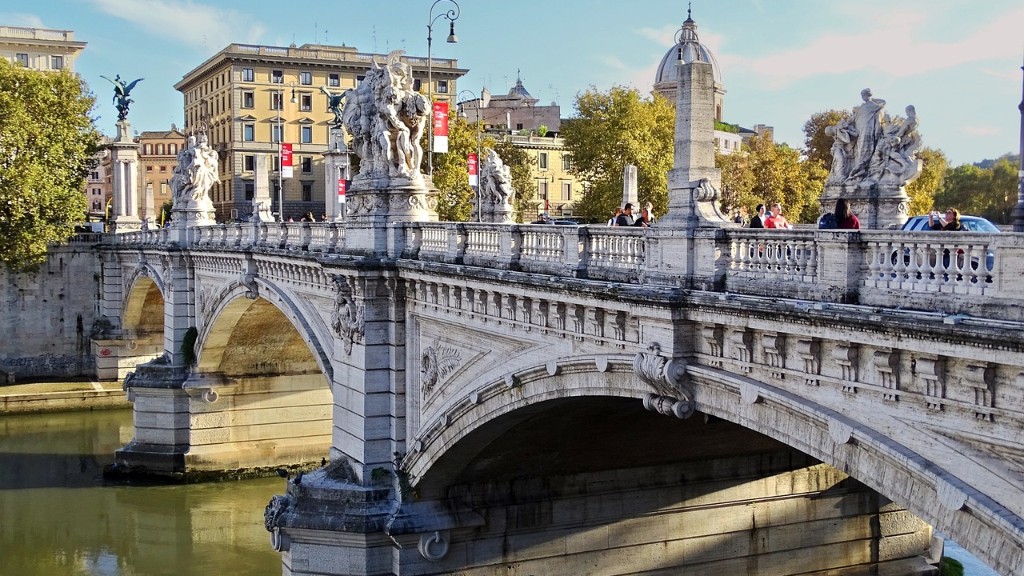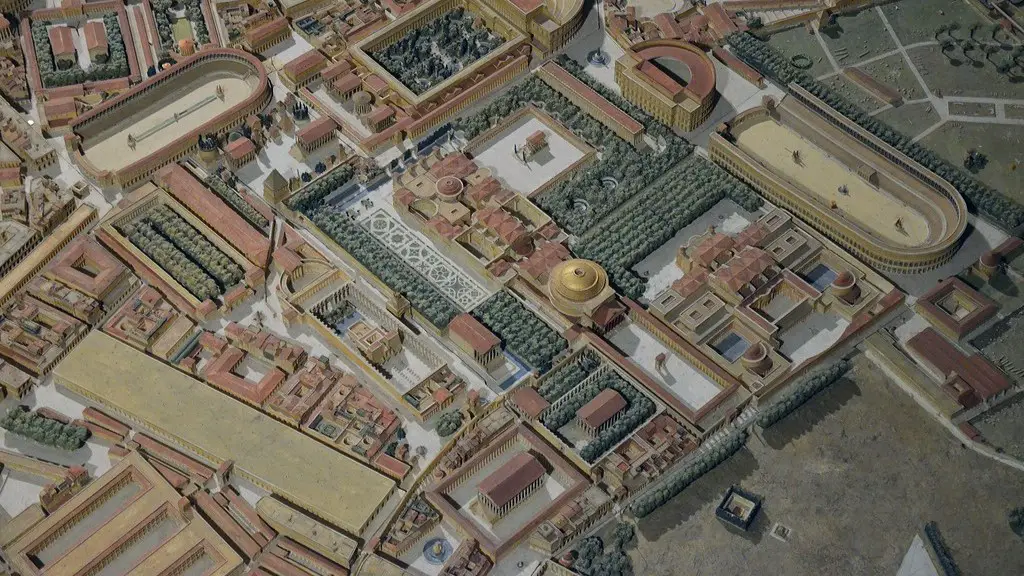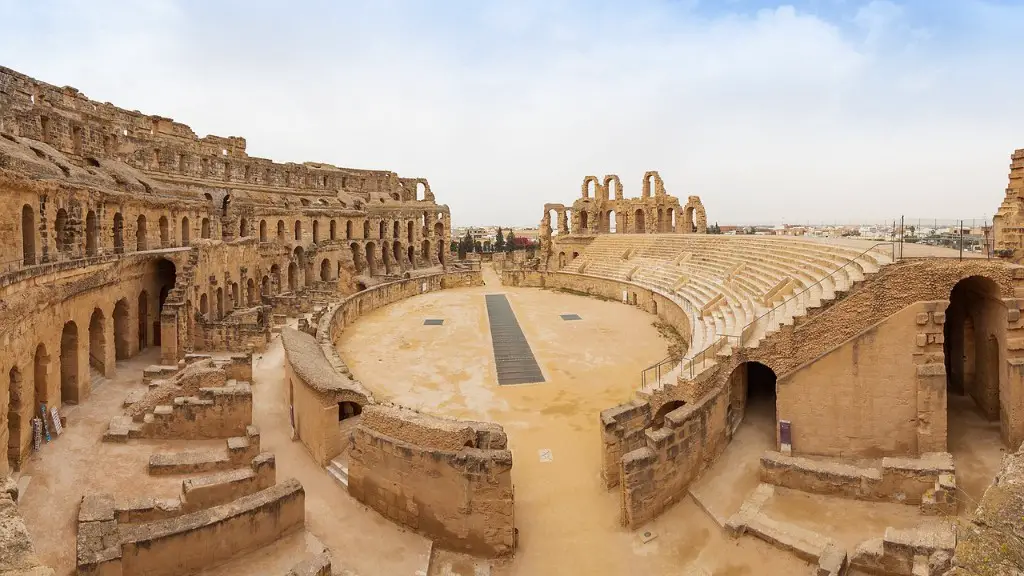Sacrifice was a common practice in many ancient societies, including the Romans. The ancient Romans sacrificed animals and sometimes also humans to appease their gods and seek divine favor in their lives. It was an important part of the Roman religion, one of the oldest and most powerful religions in human history. The concept of sacrifice was deeply rooted in the beliefs and practices of many ancient cultures and its purpose varied depending on the culture. The sacrifice of animals was a religious act and a powerful symbol of respect and gratitude for the gods.
Animal and human sacrifice had a significant role in Roman religious culture and rituals. Animal sacrifice was common and animals such as goats, calves, sheep, bulls, geese, lambs, swine, mice and even horses were used to honor the gods. In Roman mythology, the gods and goddesses were thought to expect gifts or offerings in order to give their blessings or keep them from taking revenge. Human sacrifice was much less frequent, and usually limited to the period of wars, epidemics and other disasters.
In many ways, sacrifice was an essential part of Roman life and culture. It was a way to show respect and gratitude to the gods as well as a way to ask them for protection. Sacrifices were believed to be an appropriate way to acknowledge a debt that humans had to their deities, and to ensure that the gods would bestow their blessing on humans. In religious terms, the sacrifice was seen as a way to appease the gods and establish a closer relationship with them.
Sacrifice was also seen as a way to make contact with the gods and to seek divine favor. Sacrifices were made in the hopes that gods will grant protection and favors in return for the offerings. Offerings could include items such as food, animals, money, jewelry, and even people. Sacrifices were made in times of high emotion and stress, as a way to ask for divine intervention and protection.
The majority of sacrifices were of animals, but sometimes humans were sacrificed as well. Human sacrifice usually took place during times of great calamity, such as wars, plagues, and other disasters. This can be seen in the story of the mythical founding of Rome when Romulus and Remus were sacrificed in order to end the long and bloody civil war between two Roman peoples.
Sacrifices were also used to honor the gods or to seek divine favor in matters of love, fertility and health. For example, a man might offer a ram and a white bull as a sacrifice to Jupiter and Juno in order to obtain divine blessing for his marriage. Sacrifices were also used in funeral services and in the commemoration of great accomplishments.
Sacrifice was a very important religious practice for the ancient Romans, and it had a deep spiritual and cultural meaning for them. It was a way to pay tribute to their gods and ask for divine favor and protection, as well as a way to acknowledge the power of the divine in their lives. Although the practice is no longer a common part of Roman religious culture, it continues to be a central part of many ancient religions around the world.
The Function of Sacrifices
In ancient Rome, sacrifices had a range of functions. Along with honoring and supplicating the gods, sacrifices had other purposes such as appeasing and sacrificing enemies in warfare. People also sacrificed animals as a form of purification to ward off bad luck. Animals such as doves, goats, and dogs were offered to the gods in this way in the hopes of avoiding bad luck.
Sacrifices could also serve as ritual defeat or a means of placating an angry god who could bring destruction and misfortune upon a city. The Romans believed that by performing rituals of purification with sacrifices they could appease the gods. In addition, they also believed that certain gods could bring bountiful harvests and good fortune if they received the correct offerings.
Sacrifices also served an important role in ceremonies such as the Lectisternium in which a banquet of sorts would be offered to the gods. It was believed that by honoring the gods in this way their goodwill would be reciprocated. The animals and food sacrificed in these ceremonies were offered in the form of gifts and were seen as a form of devotion to the gods.
The Aftermath of Sacrifices
After a sacrifice was made, the gods were then ‘appeased’ and their power unleashed. It was believed that the prayer, incantation, or offering was the catalyst that initiated a transformation in the recipient – either good or bad. The god or gods would then in turn be thanked, rewarded, or shunned based on their action.
For example, wishes for good fortune could result in bountiful harvests and good weather enabling the tribes to live in peace and survive. In contrast, curses could also be granted and result in drought, destruction, and war. Therefore, the consequences of a successful or unsuccessful sacrifice could be great. According to Roman belief an incorrectly performed sacrifice could condemn the city, while a successful one could bring blessings upon it.
In addition, once sacrifices were made, they usually had to be repeated in order to maintain the favor of the gods. This meant that if the gods were appeased once, the supplicant had to make sure they kept them happy. For this reason, sacrifices were often made on a regular basis. Romans also sought to use their sacrifices in a way that would maximize the gods’ blessings and bring them luck, success, and prosperity.
The Purpose of Sacrifices
The purpose of sacrifice in ancient Rome was manifold. Most significantly, it was a way to honor the gods and to keep them appeased. Sacrifices also served a practical purpose as an offering for blessings and a way to ward off misfortune. They were believed to have an important spiritual function as a way to connect with the gods and gain access to divine favors.
In addition, sacrifices were sometimes used as a means to defeat enemies, as a form of purification, to celebrate great achievements, to commemorate the dead, or to honor special events and occasions. They were also used to give thanks to the gods and as a way to request assistance in difficult times. Ultimately, the purpose of sacrifice in ancient Rome was to honor the gods and to ensure their goodwill and protection.
Types of Sacrifices
Sacrifices were usually of two main types: animal and human. Animal sacrifice was much more common and was seen as a way to honor the gods. The animals that were slaughtered varied according to the type of gods being honored and the purpose of the sacrifice. Common animals that were used included cattle, sheep, goats, and pigs.
Human sacrifice, however, was much more rare and was usually limited to times of war or disaster. Such sacrifice was seen as a way to appease the gods and was believed to have a great spiritual significance. It was often the ultimate form of offering out of respect for the gods and was seen as a way to gain divine favor.
The Impact of Sacrifices
Sacrifice was an essential part of Roman religion and culture and can still be seen as a part of many of today’s religions. The practice of sacrificing animals and sometimes humans was an important way of honoring the gods and seeking divine protection. Human sacrifice, however, was often seen as a last resort, reserved for dire circumstances when all other options had failed.
Sacrifice, however, often had traumatic effects upon those involved as well as the wider community of believers. It is likely that the stress and shock of witnessing the death of an animal or human, as well as the associated rituals and ceremonies, had a powerful psychological effect on many people.
Evidence suggests that the impact of sacrifices was far-reaching and had a profound effect on Roman society. It is clear that sacrifice was an essential part of Roman religion and that it impacted both individuals and the wider society. Ultimately, it was an important way of connecting to the gods and expressing respect and gratitude to them.
Conclusion
Sacrifice was a central part of Roman religion and impacted the beliefs and practices of many cultures around the world. Although its purpose may have changed over the centuries, it remains an important part of many ancient religions and is still performed today. Animal sacrifice was used to honor the gods and humans were sacrificed during times of war, epidemics and other dire situations. Sacrifices had a range of purposes from honoring the gods to seeking divine favor and protection. Ultimately, it was a powerful way to show respect and gratitude to the gods and an important part of religious culture for the ancient Romans.
